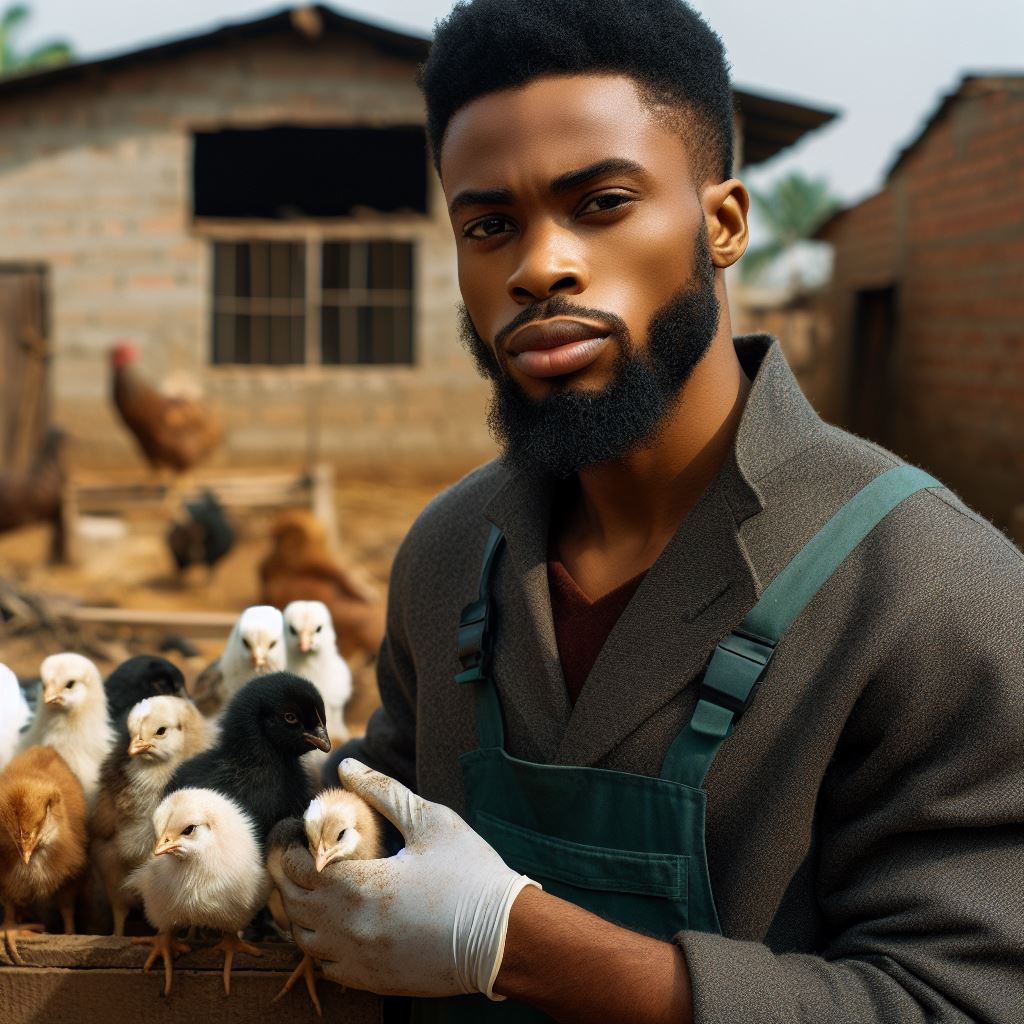Introduction
Scholarship for Aquaculture Studies: Aquaculture, vital for Nigeria’s food security, plays a pivotal role in economic development. As we delve into the realm of aquaculture studies, the significance of fostering education in this field becomes apparent.
This blog post aims to spotlight the plethora of scholarship opportunities available for aspiring aquaculture enthusiasts in Nigeria.
Education is the cornerstone of progress, and in the realm of aquaculture, it is no different.
Aquaculture studies empower individuals with the knowledge and skills necessary to navigate the complex dynamics of fish farming.
Nigeria, with its rich aquatic resources, presents a fertile ground for aquaculture development, making education in this field crucial.
The purpose of this post is clear—to guide ambitious students towards scholarship opportunities that can pave the way for a meaningful education in aquaculture.
By doing so, we aim to contribute to the growth and sustainability of the aquaculture industry in Nigeria.
In the upcoming sections, we will unravel various scholarships that cater specifically to aquaculture studies.
These opportunities not only alleviate the financial burden on students but also act as catalysts for the advancement of aquaculture knowledge and practices in the country.
Stay tuned as we explore scholarships that open doors to a world of possibilities in aquaculture studies.
Nigeria’s aquatic potential awaits those eager to dive into the realms of sustainable and impactful fish farming.
This blog serves as your compass, guiding you toward educational opportunities that can shape the future of aquaculture in Nigeria.
Importance of Aquaculture Studies in Nigeria
Aquaculture, the farming of aquatic organisms, plays a crucial role in Nigeria’s development and food security.
In this section, we will discuss the significance of aquaculture in meeting the growing demand for fish, highlight its role in job creation and economic development, and emphasize its potential for sustainable food production.
Meeting the Growing Demand for Fish
Aquaculture studies are essential in addressing the increasing demand for fish in Nigeria. With a growing population and changing dietary preferences, fish consumption has risen significantly.
Traditional fishing methods alone cannot meet this demand, making aquaculture a valuable solution.
Aquaculture enables controlled breeding, rearing, and harvesting of fish, ensuring a consistent and abundant supply throughout the year.
By studying aquaculture, students can contribute to developing improved farming techniques, such as selective breeding and optimization of feed, which can enhance fish production and meet the nation’s protein needs.
Job Creation and Economic Development
Aquaculture studies in Nigeria offer great potential for job creation and economic development. As the industry expands, it creates employment opportunities for both rural and urban communities.
Skilled aquaculture professionals are needed in various sectors, including fish farming, fish feed manufacturing, hatcheries, processing plants, and marketing.
By acquiring knowledge and skills in aquaculture, students can become entrepreneurs and establish their own fish farms, contributing to economic growth.
Additionally, the development of ancillary industries, such as equipment suppliers and fish transport services, further stimulates economic activity and strengthens local economies.
Potential for Sustainable Food Production
Aquaculture studies hold significant potential for sustainable food production in Nigeria.
With overfishing depleting fish stocks in natural water bodies, aquaculture provides a viable alternative that can reduce pressure on wild fish populations.
By studying aquaculture, students can explore innovative techniques like integrated multi-trophic aquaculture (IMTA) that combine various species to create ecological balance and minimize environmental impacts.
IMTA systems utilize fish, shellfish, and seaweeds, maximizing resource efficiency and minimizing waste discharge.
Aquaculture also offers opportunities for the production of fish with fewer contaminants. Students can research and develop sustainable fish farming practices that prioritize water quality, feed composition, and disease prevention, ensuring the production of safe and healthy seafood for consumers.
Moreover, aquaculture studies enable students to understand the importance of responsible resource management, including the conservation of water bodies, habitat protection, and biodiversity preservation.
In fact, aquaculture studies in Nigeria are of utmost importance.
They address the growing fish demand, contribute to job creation and economic development, and offer potential for sustainable food production.
By pursuing scholarships in aquaculture studies, students can make a significant impact on Nigeria’s fisheries sector and foster a more secure and prosperous future for the nation.
Read: Innovative Research & Development in Nigerian Animal Nutrition
Overview of Aquaculture Scholarship Opportunities in Nigeria
Aquaculture studies in Nigeria provide numerous scholarship opportunities for students interested in pursuing careers in this field.
These scholarships are available through various programs, including government-funded schemes, private organizations, NGOs, and international agencies.
Scholarships Programs for Aquaculture Studies
There are several scholarship programs specifically dedicated to supporting students in their aquaculture studies in Nigeria.
These programs aim to attract talented individuals and provide them with financial aid to further their education in this field.
Federal Ministry of Agriculture and Rural Development
The Federal Ministry of Agriculture and Rural Development offers scholarships for students pursuing aquaculture studies.
These scholarships aim to develop skilled professionals who can contribute to the growth of the aquaculture sector in Nigeria.
Nigerian Institute for Oceanography and Marine Research (NIOMR)
The NIOMR provides scholarships to students interested in studying aquaculture and related fields.
These scholarships are awarded based on academic performance, financial need, and the applicant’s commitment to contributing to the development of aquaculture in Nigeria.
Transform Your Career with Expert Guidance
Get personalized mentorship consulting that’s tailored to your unique path. Our expert advice is actionable and exclusive.
Get StartedNational Universities Commission (NUC)
The NUC also offers scholarships for aquaculture studies in Nigerian universities.
These scholarships are aimed at promoting research and innovation in the aquaculture sector and building a highly skilled workforce in the country.
Government-funded Scholarship Schemes
The Nigerian government recognizes the importance of aquaculture and has established scholarship schemes specifically targeting students pursuing studies in this field.
Tertiary Education Trust Fund (TETFund)
TETFund provides scholarships for students in various fields, including aquaculture.
These scholarships cover tuition fees, research grants, and other educational expenses, ensuring students can focus on their studies without financial constraints.
Federal Scholarship Board (FSB)
The FSB offers scholarships to Nigerian students for higher education both within and outside the country.
This includes scholarships for aquaculture studies, allowing students to pursue their desired programs in reputable institutions around the world.
Scholarships Provided by Private Organizations, NGOs, and International Agencies
Besides government-funded schemes, various private organizations, non-governmental organizations (NGOs), and international agencies also provide scholarships for aquaculture studies in Nigeria.
Dangote Foundation
The Dangote Foundation, established by billionaire Aliko Dangote, offers scholarships to talented students across different fields, including aquaculture.
These scholarships aim to support students with exceptional academic achievements and a passion for making a positive impact in the aquaculture industry.
United Nations Development Programme (UNDP)
The UNDP provides scholarships for students in developing countries, including Nigeria, to enhance their knowledge and skills in priority areas such as aquaculture.
These scholarships serve as a means of capacity-building and promoting sustainable development in the aquaculture sector.
Nigerian Women in Fisheries (NWI-F)
The NWI-F is an organization dedicated to empowering women in the fisheries and aquaculture sector.
They offer scholarships to female students studying aquaculture, helping to bridge the gender gap and promote inclusivity in the field.
Overall, the availability of various scholarship opportunities for aquaculture studies in Nigeria demonstrates the country’s commitment to developing a skilled workforce and promoting the sustainable growth of the aquaculture sector.
Read: Top Universities in Nigeria Offering Animal Science Courses

Government-Funded Scholarship Programs
Specific Scholarship Programs offered by the Nigerian government for Aquaculture Studies
- Federal Government Scholarship Scheme (FSP): Provides financial support to Nigerian students pursuing undergraduate and postgraduate studies in aquaculture.
- Nigeria Scholarship Award for Postgraduate Studies Abroad (NSSA): Aims to improve the expertise of Nigerian students by offering scholarships for postgraduate aquaculture courses abroad.
- Presidential Scholarship Scheme (PSS): A competitive program that awards scholarships to exceptional Nigerian students with a passion for aquaculture studies.
Eligibility Criteria, Application Process, and Selection Procedure
FSP Eligibility
- Nigerian citizenship
- Admission into an approved institution offering aquaculture programs.
- Possession of required academic qualifications.
- Good conduct and character
Application Process
- Obtain the application form from the Federal Scholarship Board (FSB) or their official website
- Complete the form accurately and submit it along with required documents
- Shortlisted candidates will be contacted for an interview
NSSA Eligibility
- Nigerian citizenship
- First-class or second-class upper degree in a relevant field
- Minimum of three years working experience in the aquaculture industry
Application Process
- Visit the official website of the Federal Scholarship Board (FSB) for the application portal
- Fill out the online application form and upload the necessary documents
- Successful applicants will be invited for an interview and screening
PSS Eligibility
- Nigerian citizenship
- Outstanding academic performance in O’ level and JAMB examinations
- Demonstrable passion for aquaculture studies
- Recommendation letters from relevant authorities
Application Process
- Visit the official website of the Federal Scholarship Board (FSB) to access the application form
- Fill in all required information and attach the necessary documents
- Shortlisted candidates will be invited for further interviews and assessments
Special Considerations and Benefits of Government-Funded Scholarships
- Financial Support: Government scholarships cover tuition fees, accommodation, and provide stipends for living expenses, reducing the burden on students.
- Mentorship and Networking: Scholars may have opportunities to interact with industry experts, government officials, and receive guidance throughout their academic journey.
- Access to Research Facilities: Government-funded scholarships often provide access to well-equipped laboratories, research centers, and libraries, enabling students to conduct high-quality research.
- Pre-Departure Training: Scholars may receive pre-departure orientation and training programs, helping them adapt to the new academic and cultural environment.
- International Exposure: Studying abroad with government support enhances cross-cultural understanding, broadens perspectives, and builds a global network for future collaborations.
In essence, the Nigerian government offers various scholarship programs for aquaculture studies, such as the Federal Government Scholarship Scheme, Nigeria Scholarship Award for Postgraduate Studies Abroad, and Presidential Scholarship Scheme.
These programs provide financial assistance, mentorship, and research opportunities for eligible Nigerian students, fostering the growth of the aquaculture industry in the country.
Read: Comparing Animal Production Education: Nigeria vs. Global Standards
You Might Also Like: A Deep Dive: Rural Development & Agri-Cooperatives in Nigeria
Scholarships by Private Organizations, NGOs, and International Agencies
Private organizations, NGOs, and international agencies offering scholarships for aquaculture studies
- Federal Ministry of Agriculture and Rural Development (FMARD): Offers scholarships specifically for aquaculture studies in Nigeria.
- Federal Ministry of Education (FME): Provides funding for Nigerian students pursuing aquaculture degrees abroad.
- WorldFish: Supports aquaculture research through scholarships for Nigerian students.
- FAO Scholarship Programme: Offers scholarships for aquaculture studies in developing countries, including Nigeria.
The scholarships available from each organization, emphasizing their requirements and benefits
Federal Ministry of Agriculture and Rural Development (FMARD) Scholarships
Federal Ministry of Agriculture and Rural Development (FMARD) offers scholarships for Nigerian students interested in pursuing aquaculture studies, both at undergraduate and postgraduate levels.
The scholarships cover tuition fees, research expenses, and provide a monthly stipend. Applicants must have excellent academic records and demonstrate a strong passion for aquaculture.
Federal Ministry of Education (FME) Scholarships
Federal Ministry of Education (FME) provides scholarships for Nigerian students who wish to pursue aquaculture degrees abroad.
The scholarships offer partial or full funding, depending on the applicant’s financial need and academic performance.
Students must have admission into a recognized international aquaculture program and demonstrate commitment to the development of aquaculture in Nigeria.
WorldFish
WorldFish supports aquaculture research in Nigeria by offering scholarships to Nigerian students.
The scholarships are available for both undergraduate and postgraduate studies and cover tuition fees, research materials, and living expenses.
Applicants need to have a strong academic background and a clear research proposal aligned with the NGO’s objectives.
FAO Scholarship Programme
FAO Scholarship Programme provides scholarships for aquaculture studies in developing countries, including Nigeria.
The scholarships aim to enhance the capacity of local aquaculture professionals. They cover tuition fees, research expenses, and provide a monthly allowance.
Only students who have been admitted to recognized aquaculture programs are eligible to apply.
Information on the application process and deadlines for these scholarships
Applying for the scholarships offered by private organizations, NGOs, and international agencies generally follows a similar process:
- Visit the organization’s website or contact them directly for detailed application guidelines.
- Gather all necessary documents, including academic transcripts, recommendation letters, and a personal statement.
- Complete the application form and submit it along with the required documents before the specified deadline.
- Some organizations may require additional steps, such as interviews or written tests.
- Ensure that all application materials are carefully reviewed for accuracy and completeness.
The deadlines for these scholarships vary depending on the organization and year.
It is crucial to check the specific deadlines on each organization’s website or contact them directly for the most up-to-date information.
Basically, several private organizations, NGOs, and international agencies offer scholarships for aquaculture studies in Nigeria.
These scholarships provide financial support to students pursuing undergraduate and postgraduate degrees in aquaculture, both locally and abroad.
The application process and deadlines may vary, so it is essential to follow the guidelines provided by each organization.
With these scholarship opportunities available, aspiring aquaculture students in Nigeria can pursue their passion and contribute to the development of this important field.
Read: Admission Requirements for Animal Science in Nigerian Varsities
Tips for Applying to Aquaculture Scholarships
Offer guidelines for preparing a strong scholarship application
- Start early and research the available aquaculture scholarship opportunities in Nigeria.
- Read through the eligibility requirements and ensure you meet all the criteria.
- Pay attention to scholarship deadlines and submit your application well in advance.
- Follow the instructions carefully and provide all the necessary information and supporting documents.
- Double-check your application for any errors or omissions before submitting.
- Show your passion and dedication for aquaculture studies in your application.
- Highlight any relevant academic achievements, extracurricular activities, or leadership experiences.
- Explain how receiving the scholarship will contribute to your educational and career goals.
- Include any additional information that can set you apart from other applicants.
- Seek feedback from mentors or teachers to improve your application.
Tips on writing an impressive personal statement or essay
- Begin by brainstorming and creating an outline of your personal statement or essay.
- Clearly state your reasons for choosing aquaculture studies and your future aspirations in the field.
- Show your unique voice and personality through your writing.
- Share personal experiences that have influenced your interest in aquaculture.
- Be concise and focused, ensuring every sentence adds value to your essay.
- Proofread and edit your essay multiple times to eliminate any grammar or spelling mistakes.
- Ask someone else to review your essay for feedback and suggestions.
- Ensure your essay reflects your own thoughts and ideas, avoiding plagiarism.
- Use specific examples and anecdotes to support your claims and illustrate your qualities.
- Finish your essay with a strong conclusion that summarizes your main points and leaves a lasting impression.
Gathering strong recommendation letters and supporting documents
- Choose individuals who know you well and can speak about your academic abilities, work ethic, and passion for aquaculture.
- Inform your potential recommenders about the scholarship and why you are applying for it.
- Provide your recommenders with a copy of your resume, transcript, and personal statement.
- Give your recommenders ample time to write the letters and politely follow up on their progress.
- Ask your recommenders to focus on specific qualities or experiences relevant to aquaculture studies.
- Collect any additional supporting documents required by the scholarship application.
- Organize your documents neatly and label them accordingly.
- Make copies of all the documents for your own records.
- Submit your recommendation letters and supporting documents before the application deadline.
- Express gratitude to your recommenders for their support and assistance.
By following these tips, you can maximize your chances of securing a scholarship for aquaculture studies in Nigeria.
Remember to stay organized, showcase your passion, and put your best effort into every aspect of the application process. Good luck!
Uncover the Details: Introducing Sustainable Farming in Nigeria
Conclusion
In this blog post, we discussed the scholarship opportunities available for aquaculture studies in Nigeria.
We encourage readers to explore these available scholarship opportunities in aquaculture studies to further their education.
For further assistance or more information, you can contact the Ministry of Agriculture or visit their website at www.agriculture.gov.ng/scholarships.




